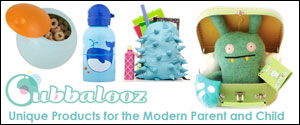being a parent
Becoming a parent does not come with an instruction manual for all the things you will face. It is one of the most important and difficult things you can do. It is also one of the most rewarding. To raise a child is a huge responsibility which is usually taken for granted and for which no training is required.
Parents grow into their role, and should not expect to be perfect and have all the answers all the time. Parenting styles differ, and as long as children’s well-being is ensured, the style that works best for parents is likely to make them feel more confident in their role. Most parents learn as they go, influenced by the way they were brought up, or by what they have read or watched others do.
We want our children to become healthy, happy, well-adjusted, successful, honest, caring, responsible adults who will be respectful of others’ feelings and property, be able to get along with others and to cope with difficulties! It is a lot to ask.
Your children and your community rely on you to do this well.
As a parent you will feel a range of emotions which are all normal and yet can feel like a roller coaster ride. You will feel love, joy and pride. You may also feel more frightening emotions which can be very strong, such as anger, panic, despair and hatred. Often parents feel that they are not appreciated by their children or valued by others.
Such emotions can leave you feeling guilty or thinking you are not a good parent. Most parents at some time feel tired and upset and question what it is all about. It is important to remember you’re not expected to be perfect. All parents feel that they have made mistakes at some stage.
Many parents:
Some things to think about:
It is important to look at ways to balance the load within the family while taking into account the workplace load. Often one parent can feel it’s unfair and lop-sided.
If you need alternative care for your children while you work, take time to choose care where your children have experiences that they enjoy. If you feel your children’s needs are being met you are less likely to feel anxious and guilty.
Children have an ongoing need for ‘connection’ with parents. There is often a danger that children find they have to compete for your time and attention. Children equate ‘love’ with the ‘time and connection’ with parents – not just being told they are loved or being given material things. If we are serious about our parenting, then we need to give as much time as we can. The more positive experiences parents share with children, the better the relationship is likely to be.
Get to know your own body signs when anger is building up and act before you lose your temper. Get some space, go outside, go for a walk or a run. If you have very young children and no one to mind them, take them with you.
You may not be able to manage your anger and may need help from a professional who is skilled in this area. Some parents are unaware of, or deny the impact their anger has on their family.
Note: If you have lost control and hurt your child or have been violent to others in your home it’s important to get help.
Article provided courtesy of Parenting SA
Parents grow into their role, and should not expect to be perfect and have all the answers all the time. Parenting styles differ, and as long as children’s well-being is ensured, the style that works best for parents is likely to make them feel more confident in their role. Most parents learn as they go, influenced by the way they were brought up, or by what they have read or watched others do.
We want our children to become healthy, happy, well-adjusted, successful, honest, caring, responsible adults who will be respectful of others’ feelings and property, be able to get along with others and to cope with difficulties! It is a lot to ask.
Your children and your community rely on you to do this well.
Being a parent
- As adults we are used to firstly looking after our own needs and adult relationship needs before coming to grips with the ‘family life’ phase (whether in a single or two parent home.)
- Life with children is never still. Parenting is constantly changing as children grow and their needs change at each stage of their development.
- For many adults the day-to-day demands of balancing the practical things and coping with often unexpected changes can be tiring. Being flexible and adaptable will help.
Your feelings
One of the most important things in parenting is your own attitude to it. Do you like it, do you feel scared about it or are you really enjoying it?As a parent you will feel a range of emotions which are all normal and yet can feel like a roller coaster ride. You will feel love, joy and pride. You may also feel more frightening emotions which can be very strong, such as anger, panic, despair and hatred. Often parents feel that they are not appreciated by their children or valued by others.
Such emotions can leave you feeling guilty or thinking you are not a good parent. Most parents at some time feel tired and upset and question what it is all about. It is important to remember you’re not expected to be perfect. All parents feel that they have made mistakes at some stage.
Information comes from everywhere
- Parents may feel overwhelmed at times by the amount of information given to them. Sometimes others such as family or friends may think their parenting practices are better and they have more experience than the parent. How advice is given, even if well intended, can add to parents feeling under-confident or a failure - which is not helpful.
- Faced with different ideas and advice, it is easy to question what you are doing. This may be a good thing as it is important to be open to ideas. Thank people for their interest and reflect on their advice. Try not to be defensive. Maybe try something that sounds as if it might work for you.
- Whatever the age of the children, parents can feel in a bind. They may want support from others and yet want to use parenting styles of their choice.
- For the most part, the law allows parents to bring up children according to their own values and beliefs without interference unless there are very good reasons and a child’s safety and well-being is at risk.
- It is so important as a parent to be able to ask for what you want from others and be confident to be yourself. Parents have the responsibility to raise their child and to practise what best suits their family.
Working parents
Work is now such a big part of our lives, that many parents feel they are in a constant juggling act, trying to balance work and family life - and doing neither as well as they’d like.Many parents:
- feel guilty about not being able to ‘be there’ or having the time to do the things they’d like to do with their children
- worry about what to do when their children are sick
- worry about what others think of them when things go wrong
- can become stressed when faced with the unexpected that can throw the daily routine out before the workplace day even begins
- feel pulled in both directions with competing pressures from work and meeting children’s needs.
What you can do
It helps if you can plan and organise in advance how to manage time and look after yourself and your children. Where two parents are involved they need to talk about how responsibilities will be shared.Some things to think about:
- what is the first priority?
- who does what tasks?
- what plans are there for sick children/school events (who takes time off)?
- finding special time to spend with partner/friends
- making time for self/leisure activity
- making time for family being together
- giving special time to each child.
It is important to look at ways to balance the load within the family while taking into account the workplace load. Often one parent can feel it’s unfair and lop-sided.
If you need alternative care for your children while you work, take time to choose care where your children have experiences that they enjoy. If you feel your children’s needs are being met you are less likely to feel anxious and guilty.
Children have an ongoing need for ‘connection’ with parents. There is often a danger that children find they have to compete for your time and attention. Children equate ‘love’ with the ‘time and connection’ with parents – not just being told they are loved or being given material things. If we are serious about our parenting, then we need to give as much time as we can. The more positive experiences parents share with children, the better the relationship is likely to be.
Things that might make parenting easier
Find out what you don’t know
- Understand how children grow and develop.
- Be aware that you can do things differently.
- Be strong enough to say you don’t know how to do some things.
- Be able to ask for information or advice.
Accept your feelings
Understand that mixed feelings are normal. At times of stress or change you can be swamped with a range of emotions. Sometimes you may feel fed-up or guilty. At these times it is important to reach out - speak to your partner, friends, or family members or to someone not caught up in the emotion.Trust yourself
Everyone has their own ideas about parenting and sometimes it’s easy to become confused or to feel not good enough. Listen to other people’s ideas as this is how we all learn. Do what feels right for you and your children. Trust your own judgement.Value yourself
You are doing an important job. Be proud of the effort you have put in through the day, no matter how small the tasks. When talking to friends about parenting, don’t moan and groan, because this won’t change things - try new approaches. Never forget how important parenting is.Look after yourself
Remember you are a person as well as a parent. Be careful not to expect too much of yourself and of others. Enjoy your own special talents. Praise yourself for simple things. Don’t dwell on mistakes as they are for learning from, not for making you feel bad. Try to find things to look forward to.Reward yourself
Do at least one thing a day that makes you feel good. Ask someone to help so you can have ‘time out’ to do whatever you feel like doing even if it’s 30 minutes - have a bubble bath, read a magazine, kick a football, go for a walk, talk to a friend.Talk to yourself
The way you talk to yourself matters. If you say to yourself ‘My child is trying to get at me’ or ‘Why should I put up with this?’ you will react very differently than if you say ‘What’s happening to my child to make him behave like this?’ Often you can change a situation just by changing the way you think about it.Work out your own values
Clear values and beliefs are very important in forming the basis of a good foundation to raise children. Try to reach some common agreement with your partner if you have a difference of opinion. A shared and clear approach to parenting is less confusing for your child. If you and your partner differ, try not to put each other down.Get support
Parenting is so hard to do without help from others. If you feel alone and can’t find support within your family, find someone to talk to about your concerns. Don’t be afraid to ask for help - it is not a sign of failure - it is the smart thing to do. You will often find that others feel the same as you.Sorting and fixing
Being a parent is hard enough when things are going well, but so much more difficult when things are going wrong in other areas of your life. If you have violence in your home, money problems, ill health, arguments with neighbours or hassles at work, try to sort out the problem. Avoiding doing something about it will only make things feel worse for you. This may mean that, for the first time in your life, you need to seek advice from a professional if you have no success in sorting it out within your family.Take care of your relationship
One of the best things you can do for your children is to look after your own needs for support and love. Your closest relationship will probably be with your husband or wife or partner, but it may be with a special friend. Make regular time for your adult relationship where you can be alone together, do things you enjoy together, talk about your day, share ideas and feelings and just relax. These times are really important to clear up any misunderstandings and one of the very best gifts that you can give to your children. Children learn about relationships by what they see happening with the people around them.Managing anger
There are times in all parents’ lives when they feel very angry. Most of the time parents handle it well, but sometimes the anger can be in danger of getting out of control. Anger is always mixed with another feeling such as guilt, frustration, sadness, feeling unwanted or feeling used. Try to do something about whatever is causing the underlying feeling. Work out when you are most likely to lose your cool and plan to do something different at those times, e.g. when you first get home from work.Get to know your own body signs when anger is building up and act before you lose your temper. Get some space, go outside, go for a walk or a run. If you have very young children and no one to mind them, take them with you.
You may not be able to manage your anger and may need help from a professional who is skilled in this area. Some parents are unaware of, or deny the impact their anger has on their family.
Note: If you have lost control and hurt your child or have been violent to others in your home it’s important to get help.
Reminders
- Parenting is forever, so make the foundation solid.
- Find out about child development so you know what to expect.
- As a parent you are the most influential person in your child’s life.
- Mistakes only matter if you keep repeating them.
- Plan, organise, communicate - so you can balance work and family responsibilities, and meet your children’s needs.
- Don’t waste time and energy feeling guilty - change what you are doing
- Seek help from others, but keep on believing in yourself.
Article provided courtesy of Parenting SA
advertisements






| 1. 10 candles to light your fire - how much fun can you fit on your cake?! 2. Hoopla kids - Scrumptious looking gears to brighten your kids' wardrobes 3. How to dress your child for a special occasion 4. Fruity pineapple flamingo party - Sweet, bright and sunny 5. Spanish Baby Bites- European sleeping bags that are unique and adorable |
|
|
| 1. Upcycling baby clothes - Turn your most treasured items into something that lasts 2. Grace's ballet party - celebrate your tiny dancer 3. After the birth - What to expect when you've welcomed your bundle of joy 4. Lalaloopsy party - How to craft your party around a centrepiece 5. 10 candles to light your fire - how much fun can you fit on your cake?! |
|
|
| 1. Scone peapods - the cutest and most delicious vegetables around 2. Lalaloopsy party - How to craft your party around a centrepiece 3. Superkids Scroggin- An innovative lunchbox idea 4. Jeffrey's Lego Party - totally Legotastic 5. Best indoor playsets - Unbelievable fun most of us can only dream of! |





